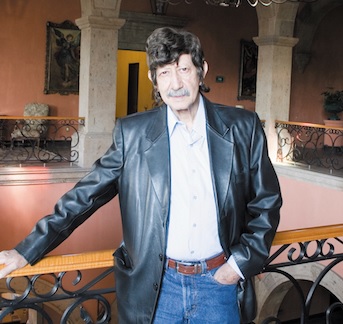PURE VODKA, AGED rum, single malt scotch and… 100% agave tequila. Every spirits category has at least one characteristic which is considered more premium, and there are trends pushing the popularity of 100% agave tequilas in Europe – but at what cost to the supply of agave? And does an agave-rich tequila guarantee quality or are consumers overpaying for marketing?
The term ‘100% agave’ is now popping up on bottles of tequila across Europe. This relatively new demand from consumers is putting added pressure on its resource. Blue agave, an incredibly complex plant, is the basis of the entire tequila industry and it is only harvested once every six to nine years. This means supply and demand for the plant fluctuates over time and, right now, demand is heavily outweighing supply.
In 2016, the Consejo Regulador del Tequila reported that the industry produced 273.3m litres of tequila, with more than half of this being 100% agave. Sixty per cent of 100% agave was exported.
When supply outstrips demand, producers are able to hand-pick the best to guarantee consistent tequilas at a lower
price point. But when the reverse happens, as it is right now in the Jalisco region, the high demand means the price of the raw material goes up and the consistency and price points of brands may waver.
Back in the ’60s, regular tequilas, or ‘mixtos’, were introduced as a cheap alternative to the 100% agave version and they proved popular via the salt, lime and shot ‘tradition’. Regular tequila only needs to be 51% agave and 49% other sugars, which meant producers could create a more consistent product at a lower price.
PAYING THE PRICE
Tequila ambassador Tomas Estes tells DI that, at the time of interview, the price of agave is 20 pesos/kg and it’s believed that by June next year it will be up to 26 pesos.
“Right now the price of agave for tequila is skyrocketing and the demand for tequila is going up.
“The price is moving up weekly. This makes it really hard for small producers, and I heard that some big brands are buying agaves at three to four years old because it’s cheaper and they aren’t necessarily looking for flavour.”
Estes believes the shortage will likely last another three or four years and that agave syrup is reportedly taking up 30% of the demand. This is new competition for tequila producers.
“There are rumours that some producers are adding grain-based non-agave alcohol, which is a scandal and against the rules.”
If this is true, then it may be difficult to trust certain 100% agave brands during a time of agave shortage.
FRIENDLY FARMING 
Francisco Alcaraz – legendary master distiller at Patrón – expresses the importance of positive relationships with agave producers.
“The number of 100% agave tequilas has almost reached that of mixtos, so the demand for agave is getting much bigger,” he says.
“The cost of producing Patrón is increasing but we’re never going to buy inferior agave. First quality, then the price.”
“We don’t own our own agave fields. We contract with growers throughout the region because agave growers are good at growing agave, and tequila producers are good at producing tequila.
“So, we have long-term agreements with the growers that if the price of the plant increases we will pay that price, and if the value decreases, we still pay a pre-agreed price. This way the agave growers will never lose money working for Patrón and they’re very loyal.”
Larger brands such as Patrón are able to adapt to the agave market more than smaller producers, who will either need to pull production until another affordable harvest takes place, raise their price point, or make regular tequila if they want to survive without breaking the rules.




